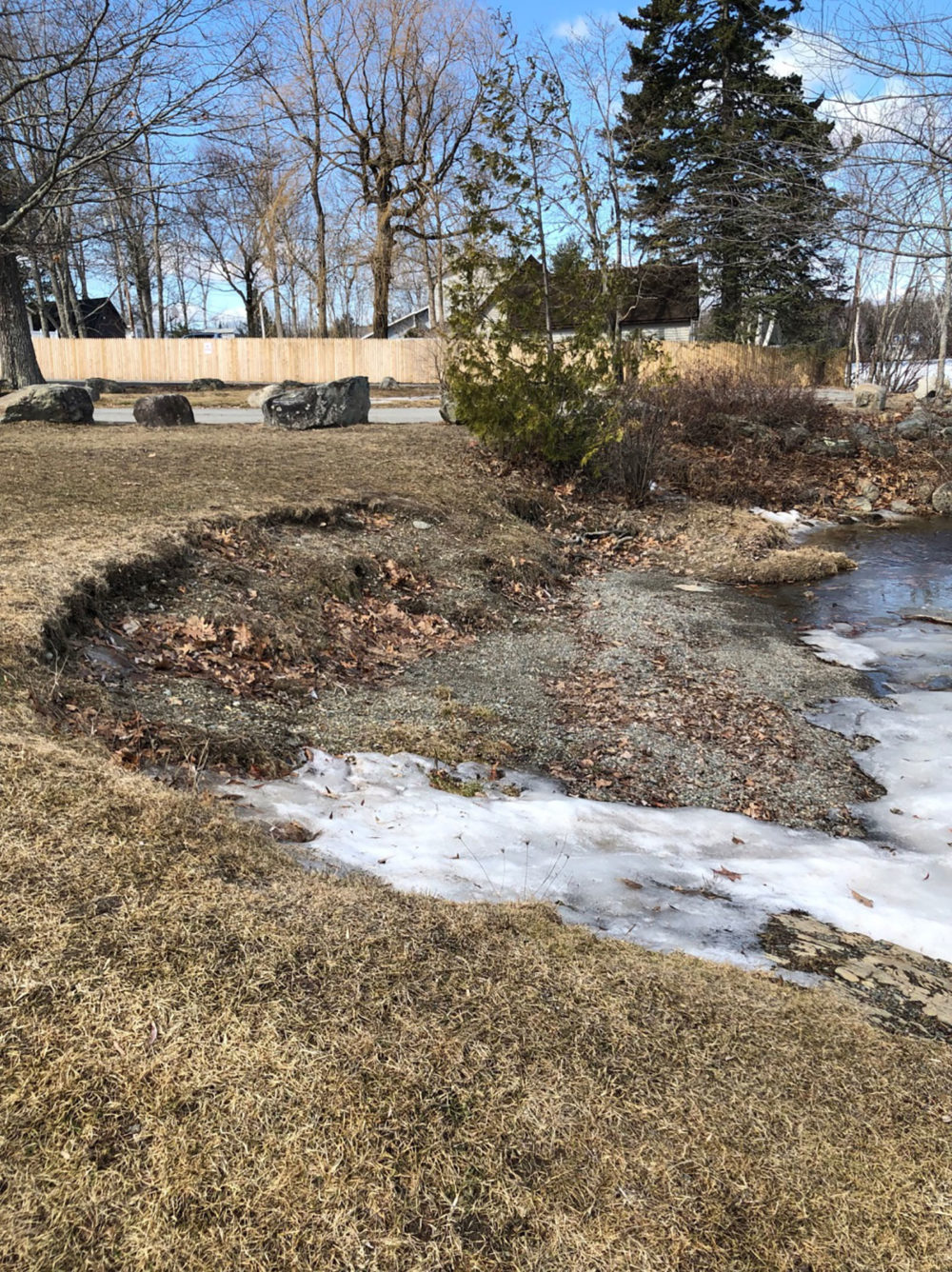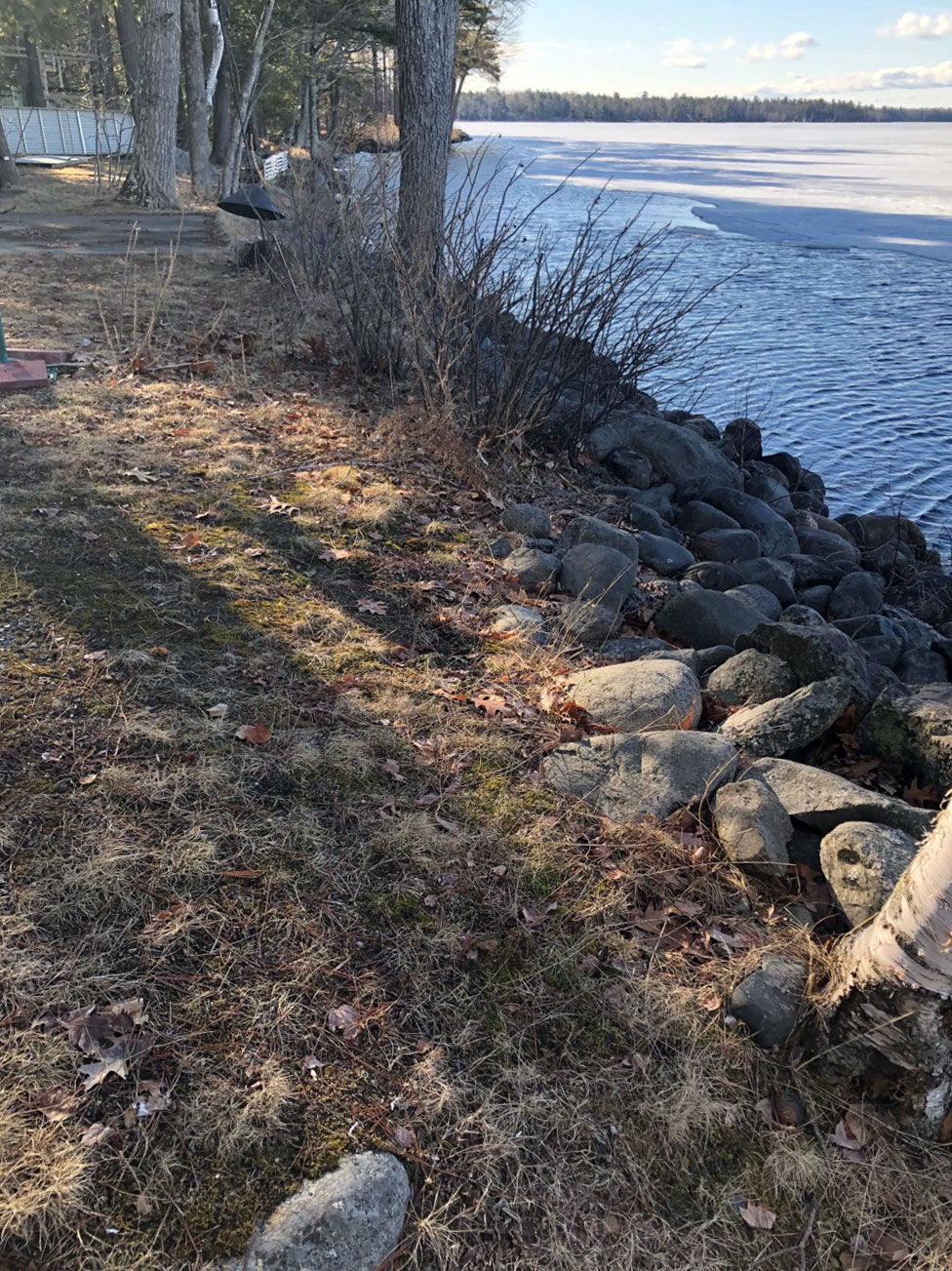Just when it looked like the winter had finally ended and the snow was gone for the foreseeable future, we were surprised by six more inches of snow. Fortunately, in the short window that we had with bare ground, we were able to take a look at a few potential worksites for our Nonpoint Source Pollution project on Pushaw Lake with support from the Natural Resources Council of Maine. Our project has and will continue to evolve as we determine the needs of our different work sites. Currently, it looks like we will be involved in a lot of buffer planting.
We have identified two residential sites that are in need of a buffer and a town landing that is in need of an erosion control plan. We have established a team of students who will visit these three sites and develop a plan based on the geography and needs of the specific property.

One of our potential work sites
In our English Language Arts classes, we will ask our students to contact a local nursery seeking donations of native plants and planting material. Our students will have the opportunity to explore persuasive writing, while also taking part in our integrated project.

Another of our potential work sites
In our science classes, we have started to build background knowledge needed for this project. Students are learning about erosion and deposition, chemistry, the water cycle, and energy flow in plants. By building background knowledge in these areas, students will be better prepared to examine the worksites at Pushaw Lake and see their local place as a dynamic system with many changing parts. We want students to see that one small change can make improvements to a larger watershed system. We also identified the potential negative impacts of our actions so that we can avoid damaging other parts of the system. Students will also make other STEM connections to this project through analyzing and using data, creating 3D printed models, and selecting school sites to test erosion control solutions.
— Drew McLaren, Melissa Zabierek, Hannah Dickinson, 7th Grade Teachers, Leonard Middle School, Old Town, Maine










Hi,
The students will do a great job. They are protecting the water for future generations….